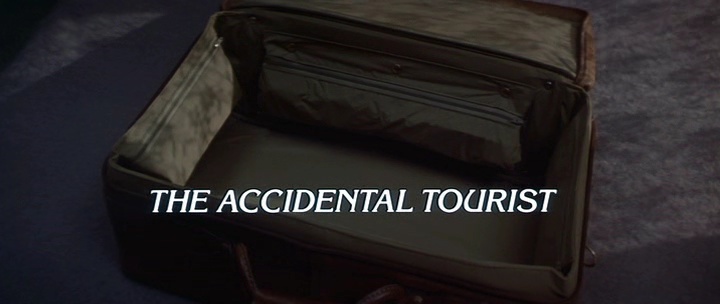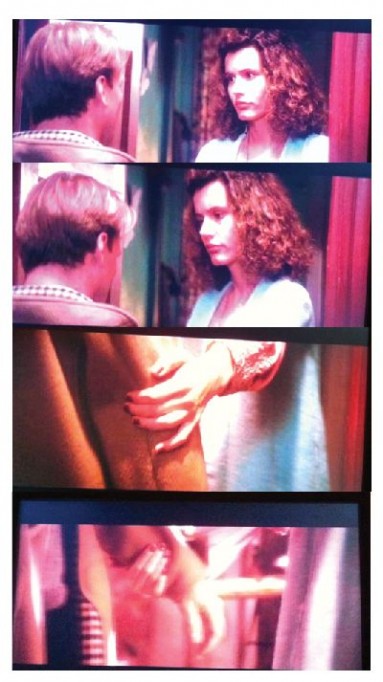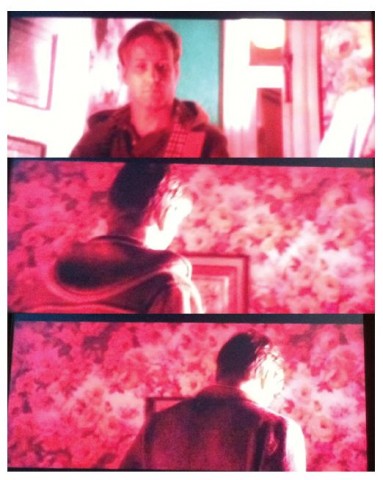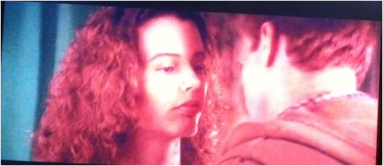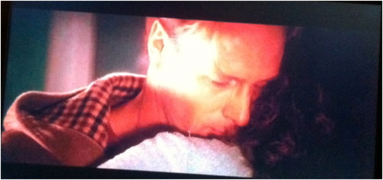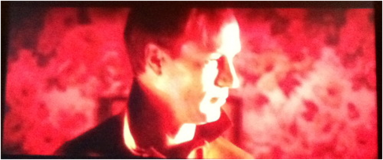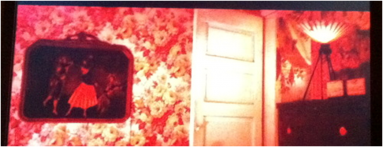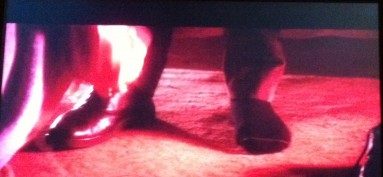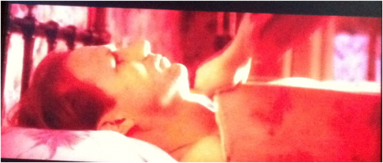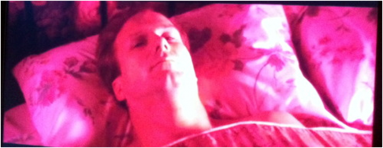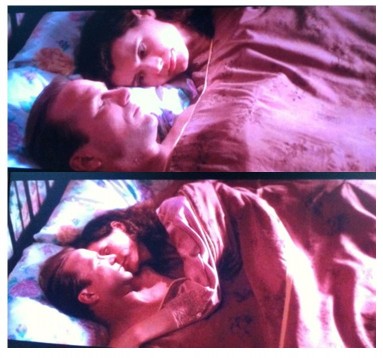“Here is the age of the sayable: here is its home.” —Rilke
Sometimes you watch a movie and it grieves beside you, or with you, and you grieve beside or with it. The pain you feel takes solace from and residence in the pain onscreen. You go to the screen just for that. For a space that is interested in the space of pain.
For years I watched movies for this reason. Going into the places, alone, where I stopped feeling alone while also feeling my solitude and isolation more keenly. Amplifying and saturating my sadness in and with movies, every significant period of loss, solitude, and contemplation in my life has been accompanied and allayed by watching films for months — sometimes years — at a time. I’ve gone into movies and through movies to get to some other side.
For the past three days, I’ve been watching The Accidental Tourist. Little bits of it here and there. In doses. Sometimes it just plays while I zone out and think about other things, like William Hurt’s half-dead, grief-stricken man, Macon. Watching, not watching. Here, not here. Hurt hurt. I like young William Hurt. Late '70s, very early '80s Hurt. So screwed up in real life. Such a jerk. Beautiful for only a handful of years. He was always so uncanny onscreen. Like some alien man (a man he played in Altered States) with alien intensity. Banged up, exuding soreness. Transported. Blonde on the outside, dark on the inside.
I think I am watching this movie, dragging it out, because I need some warrior alien like Muriel (Geena Davis) to walk into my life, the way she walks into Macon’s, or he walks into hers. To take my alien hand, pull me into her home, and put me to bed. Not take no for an answer when I push them away. To understand why I'm pushing and to do it anyway. To do it because of that. To go right through me. But fearless people — lovers — like Muriel only exist in the movies. Love only shows up like a person, like an alien in your life and body, in the movies.
John Williams wrote the score for The Accidental Tourist. Williams’s weird, familiar, ongoing score shows up in every one of his soundtracks. The Accidental Tourist, a movie about grief and loss, has many of the same notes as Jaws, E.T., and Superman, making it sound like both water and outer space. Real and imaginary. Down below always sounds like up above in a Williams score, and vice versa. Between worlds, and between worlds is what Macon is. Between two worlds, two women. Life and death. The death of Macon’s son keeps him in limbo, out of the world, and then — through pain — directs him to love. Back into the world.
Macon tells Muriel, who is all life, about losing his 12-year old son:
“Now I’m far from everyone.”
Last weekend a friend joked that I was three centuries far.
“We don’t live in the 17th century, Masha. And this is not a Thomas Hardy novel.”
I was drunk, so I just laughed. I’ve been told similar things before.
I pictured the tragic Tess of the d’Urbervilles.
My friends, who want to walk away from me at times because I am too close. Who like things far.
I don't know where I am, but everything — then and now — is real. No matter where you say things. No matter where you hear them. We have designated certain places for reality. But nothing is that clear anymore.
“Life isn’t a romantic comedy.”
Everyone is always telling me what life is not like. What isn’t like it was, as if people have nothing to do with how things are. This summer a lover told me that he thought love was an improbability, which is something you also hear people say in the movies. “What are the chances?” he kept asking, disheartened. But he was a bad actor. He was just saying his lines. Trying to commit them to memory. He didn’t actually believe it. He just wanted to hear that it wasn't true.
If we’d been onscreen, everyone in the audience would know what was coming. They’d say, “Those two are falling in love. He doesn’t mean what he is saying.” What happened to us did not look like a Thomas Hardy novel, but it did look and feel like an Ingmar Bergman film. I thought that the minute I stepped into his apartment, which was really a cabin in the middle of nowhere. The past in the present. The present in the past. Everything as it's always been. We were in our time and not in our time. The absolute quiet around the two people that we were. Our memorable faces with so much room. The wide-angle spaces all around us. The dream of life.
Where and when do things happen? Like Tarkovsky’s indeterminate and interstitial Zone in Stalker, what happened to me was so real, so bound to a specific moment and place in time—a zone—it wasn’t real at all, as in it was detached from the cynical (unreal) “reality” of everyday life, where what passes for real is never true. In Zona, his book on Stalker, Geoff Dyer writes, “even when we see clearly, we are not sure what we are seeing.” The Zone is a place where one’s deepest wishes come true. Where wish (desire) turns into place. “Here we are…” the Stalker says, “home at last.” Home from home.
In Derek Jarman’s Jubilee, John Dee (based on Shakespeare’s Ariel from The Tempest) tells Queen Elizabeth I, “In you is the beginning and the end and the forgetfulness beyond … Every deed you accomplish accompanies you throughout time.”
In the movies, people deny in order to affirm. Denial sets things in motion. In the movies the dialectic of affirmation-negation is everything. You have to say you don’t want something to get what you want. Lying is one of the ways to instigate truth.
Kafka said that we need books, and in this case movies, too, “that affect us like a disaster, that grieve us deeply, like the death of someone we loved more than ourselves, like being banished into forests far from everyone, like a suicide. A book must be the axe for the frozen sea within us.”
What and where should a person be for another person?
Macon is frozen and Muriel takes an axe to him.
In the movies, someone calls you. Someone comes to pull you out. Out of the distance, the death, the isolation, the other time you’re in. The frozen sea. Someone sees what’s on your face. What’s in your body. Someone wakes you up. Someone wants to be awakened. In the Zone in Stalker, Geoff Dyer writes that “everything is reciprocated.” No one leaves empty-handed.
If you push through someone, if you take their no for a yes, do you become their ghost and do they become yours? When Macon walks into Muriel’s house for the first time, everything is red and green, and pulsing. Life comes back to life. Life comes back to people. Muriel’s red and green house is what is still left. What is still alive. Muriel lays Macon down to die in her bed because he is dead and needs to be resurrected. Macon tells Muriel he doesn’t want to be seduced. He just wants to sleep. But then he tells her to take off her clothes when she lies down next to him. He wants her to be naked like him. With him. Muriel says she’s too bashful. Then quickly resolves this problem by climbing on top of Macon and making love to him.

